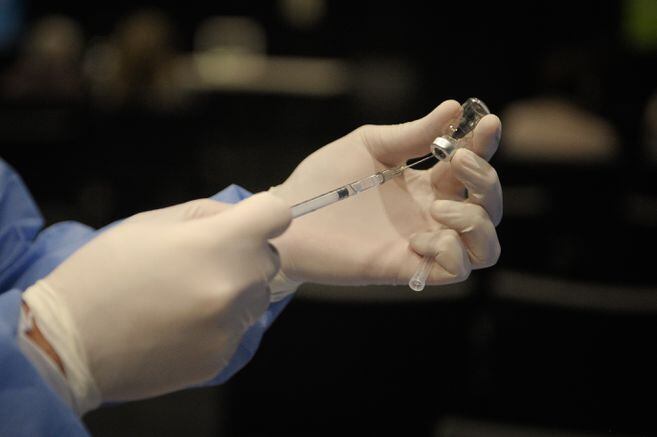United States health authorities reported Tuesday that they are going to investigate a link between the Johnson & Johnson vaccine and the extremely rare cases of blood clots that have occurred after its application. While the announcement to pause its use while it is being evaluated may raise a warning, here are some reasons why you shouldn’t be alarmed.
Scientists from the U.S. Food and Drug Administration and the U.S. Centers for Prevention announced Tuesday that they will jointly investigate possible links between Johnson & Johnson’s COVID-19 vaccine and the development of rare conditions such as blood clots in the blood. While the announcement may sound scary, there are reasons not to be alarmed.
The director of the FDA’s Center for Biological Research and Evaluation, Peter Marks, and the CDC’s senior deputy director, Anne Schuchat, said in a joint statement that they recommended “ taking a break from using this vaccine as a precaution, ” while she met with the Scientific Committee to analyze the evidence and stressed that “these adverse events seem extremely rare at the moment.”
Today the FDA and @RTLnews has issued a statement regarding the Johnson & Johnson #COVID-19 vaccine. We recommend a break from the use of this vaccine out of an abundance of caution.
– US FDA (@US_FDA) April 13, 2021
The announcement does not mean that North American health authorities are in doubt about the safety or efficacy of the Johnson & Johnson vaccine, but rather that it is part of a fundamental and necessary process in the context of the emergency the world is facing: pharmacological surveillance. In other words, no matter how rare possible side effects, they cannot be ignored. They require research and transparency.
In this particular case, of the nearly seven million people who have received the Johnson & Johnson vaccine in the United States, only six have been reported so far in which recipients developed a rare blood clot condition. All six cases occurred within two weeks of vaccination and in women between the ages of 18 and 48. At present, the relationship with the vaccine has not yet been proven.
It should be remembered that the vaccines have been approved for emergency use in the midst of an unprecedented situation, which means that so far only partial information is available on the results of their application. In addition, they are administered to people who do not accurately reflect the population who volunteered for clinical studies. Thus, as its use continues and increases, so do the data on efficacy, safety and potential side effects attributable to vaccination (ESAVIS).
“Given the size of the population being vaccinated, the likelihood of detection of rare events is increasing and detailed observation of all of the above factors becomes important, hence the entities overseeing ESAVIS are making efforts to include and maintain this information. to get a better understanding of the risk profile and guidelines for the use of vaccines, ”say the experts of the DIME project. For this reason, whenever there is a slight suspicion of an adverse effect, health authorities will pause to carefully monitor any symptoms, to show if it is related to the vaccine and to rule out any form of doubt.
For these reasons, FDA and CDC scientists will jointly explore possible links between the vaccine and the potential effect that has been identified. This will allow them to make more informed decisions, such as whether the FDA can continue to authorize the use of this vaccine for all adults, or whether it should limit the authorization to a specific population. It will also allow you to know more information about the mechanism that could cause this type of effect, in order to better treat it in the very rare cases where it might occur.
“Until that process is complete, we recommend this interruption. This is important to ensure that the health care practitioner community is aware of the potential for these side effects and can plan the appropriate treatment needed for this type of blood clot, ”said the FDA.
To date, clinical studies of this vaccine have shown that it can be 66% effective in the prevention of mild diseases and up to 85.4% in cases of severe or severe disease.
In addition, the FDA stated that the vaccine also provides protection against the South African and Brazilian strains, and in clinical trials in the United States, it showed an efficacy of 85.6%, with a rate of 81.7% in South Africa and 87.6% in Brazil.
